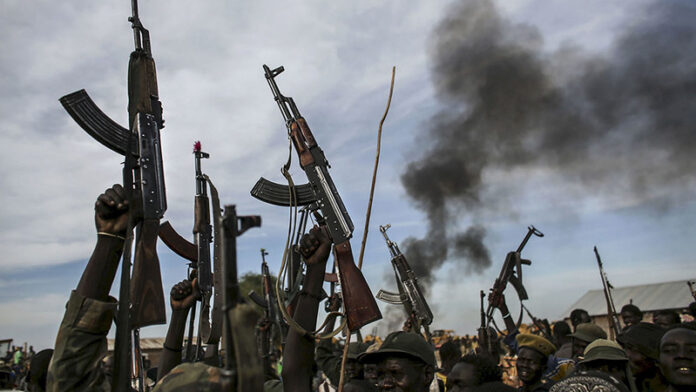NAIROBI, Kenya (KAAB TV) – In a significant move aimed at curbing the ongoing violence and human rights violations in South Sudan, the United Nations Security Council has decided to extend the arms embargo on the country for another year.
This decision has been welcomed by Amnesty International’s Regional Director for East and Southern Africa, Tigere Chagutah, who sees it as a crucial step towards protecting the millions of civilians who have endured a decade-long conflict marked by atrocities such as rape and other forms of sexual violence.
Chagutah emphasized the importance of the arms embargo in preventing the flow of weapons into South Sudan, which have been consistently used to commit heinous crimes with impunity.
The extension of the embargo sends a clear message to the South Sudanese government that urgent action is required to implement the Joint Action Plan on addressing conflict-related sexual violence, as well as other benchmarks set by the Security Council under Resolution 2577 of May 2021.
While Amnesty International views the extension of the arms embargo as a positive step, there is concern regarding the provision that allows South Sudan to import “non-lethal” equipment without informing or seeking an exception from the Security Council’s sanctions committee. Research has shown that security forces in the country have misused less lethal weapons to violently suppress peaceful protests, causing severe injuries and deaths.
Amnesty International further calls upon the Security Council to ensure the implementation of effective measures to control the flow of weapons into South Sudan. Violators of the arms embargo, whether they are states, businesses, or individuals, must be held accountable for their actions.
The UN Commission on Human Rights in South Sudan, the UN Panel of Experts, and the Secretary General’s recent reports to the Security Council have all highlighted the increasing cases of conflict-related sexual violence and the lack of progress in implementing the Joint Action Plan.
In a 2022 report, Amnesty International emphasized how government soldiers, opposition-aligned groups, and non-state armed groups in South Sudan use firearms to perpetrate conflict-related sexual violence.
The Security Council initially imposed the arms embargo on South Sudan through Resolution 2428 in 2018 and has since renewed it multiple times, with the most recent renewal occurring via Resolution 2633 in 2022. Resolution 2577, adopted in 2021, expressed the Security Council’s willingness to review the arms embargo measures based on an assessment by the Secretary-General of progress made towards five benchmarks.
These benchmarks include the completion of the Strategic Defence and Security Review process outlined in the Revitalised Agreement on the Resolution of the Conflict in the Republic of South Sudan (R-ARCSS), the establishment of the Necessary Unified Forces, progress in the disarmament, demobilization, and reintegration process, proper management of existing arms and ammunition stockpiles, and implementation of the Joint Action Plan for the Armed Forces to address conflict-related sexual violence.
According to the UN, the implementation of these benchmarks has been minimal or non-existent, indicating a lack of progress in South Sudan’s commitment to peace and the protection of human rights.
The extension of the arms embargo serves as a reminder to the South Sudanese government and the international community of the pressing need for meaningful action to end the suffering of the country’s civilians and bring about lasting peace and stability.


